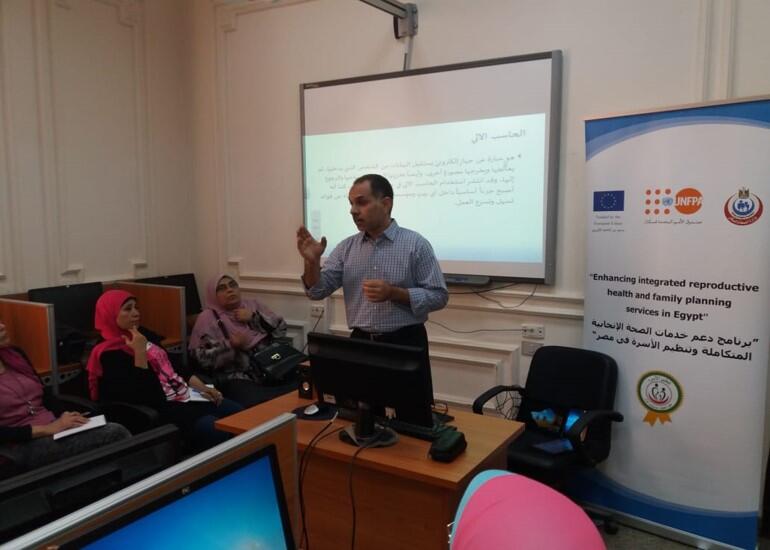To kick off the EU Support to Egypt’s National Population Strategy project, UNFPA along with the Ministry of Health and Population worked on enhancing the provision of quality family planning services by skilled personnel according to most updated standards of practice.
This was done through different activities including formulating a clinical supervision and technical performance audit tool using a participatory approach that included input from family planning sector officials, middle level management, and providers from different governorates such as Qena, Suez, Daqahleya, Alexandria, Sohag, Giza, and Kafr al-Sheikh.
Selected curricula and training materials were also updated in accordance with the latest WHO family planning handbook and updated standards and codes of practice.
The project also worked on updating the basic training package for family planning practitioners, decision making counselling tool for physicians and nurses, use of ultrasound devices, and medical eligibility criteria for family planning curricula.
The updated curricula were disseminated to the reproductive health and scientific committee members for validation.
Finally, immediate postpartum contraception and immediate IUD insertion guideline and training manuals for physicians and nurses developed.
The “EU support of Egypt's National Population Strategy” kicked off in April 2018 with the support of an EU-grant of 27 Million Euros.
The project aims at increasing the use of voluntary, rights-based family planning through improved supply of family planning services and commodities, increased demand for family planning, and enhanced governance for implementation of the National Population Strategy. It will ultimately benefit Egyptians of reproductive age who will have more choices regarding the size of their families, as well as the timing and spacing of children.


